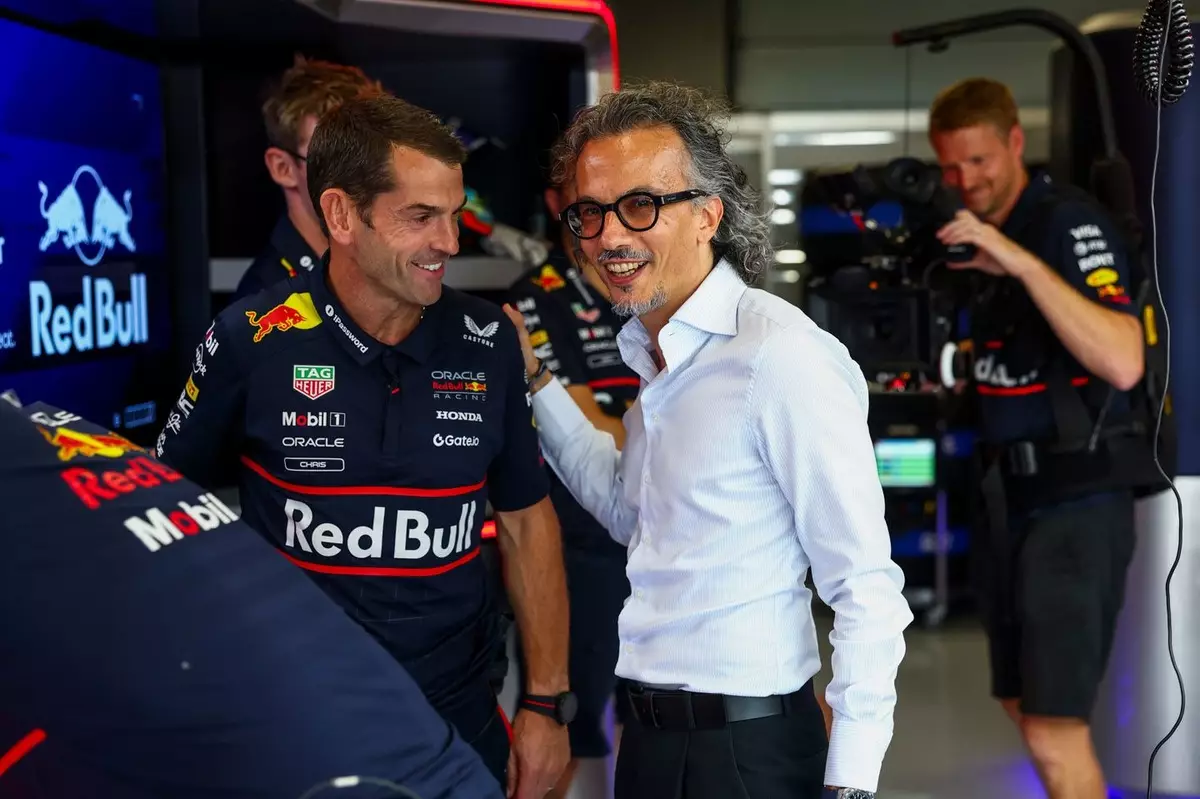In a calculated move that underscores its commitment to maintaining dominance and fostering innovation, Red Bull Racing recently appointed Laurent Mekies as its new team principal and CEO. This decision came after two transformative decades under Christian Horner’s leadership, a period marked by unprecedented success and strategic growth. The shift is not just a change in personnel but a significant indication of Red Bull’s intent to evolve and adapt in an increasingly competitive Formula 1 landscape. Mekies’ hiring highlights the team’s recognition of the importance of leadership with a blend of technical prowess and people skills, aiming to sustain their competitive edge while embracing a new vision for the future.
Mekies’s arrival is a testament to the sophistication of Red Bull’s management thinking. Having worked closely with the Racing Bulls team over the past year and a half, Permane, the incoming Racing Director, expresses confidence in Mekies’s capability to navigate the complex waters of F1’s technical and political challenges. His emphasis on Mekies’s “people-first” approach showcases an understanding that leadership in F1 extends beyond mere technical knowledge; charisma, diplomacy, and the ability to unify a talented, often high-strung team are equally vital.
This strategic leadership transition also incorporates long-term planning, with Red Bull heading into the 2026 regulations overhaul. The development of a new in-house powertrain system at Milton Keynes, brought on board by Horner during his tenure, underscores the team’s dedication to technological independence and innovation. With the dual goals of maintaining dominance on track and controlling engine development, the organization is fortifying its foundation for sustainable success. Mekies’s experience and proven track record will be essential in orchestrating these ambitious projects, ensuring that they harmonize with the team’s racing ambitions.
Continuity and Change: Balancing Tradition with Innovation
One of the most compelling aspects of this leadership change is the delicate balance between honoring Red Bull’s storied past and forging a world-class future. Christian Horner’s legacy is formidable—a man who built the team from its roots as Jaguar Racing into a powerhouse that clinched multiple World Championships, driven by the talents of Sebastian Vettel and Max Verstappen. His strategic vision and perseverance laid a formidable foundation, but the new leadership signals a desire for renewal and adaptation in an era characterized by rapid technological advances and intense competition.
Permane’s insights reveal an optimistic outlook, emphasizing that Mekies’s history at Racing Bulls provides continuity—crucial in a sport where knowledge sharing accelerates progress. Despite the change at the top, the collaborative spirit cultivated between Racing Bulls and Red Bull Powertrains is expected to persist, ensuring seamless integration of new components, technology, and strategic initiatives. The existing synergy within the Red Bull ecosystem demonstrates that progress in racing is ultimately a collective achievement—one built on collaboration, shared goals, and mutual respect.
Moreover, Permane’s role exemplifies how leadership in F1 now transcends individual expertise; it demands a cohesive management environment that fosters innovation while safeguarding operational stability. He emphasizes the robustness of the management team across both Faenza and Milton Keynes—an organizational structure designed to support Mekies’s strategic vision while allowing executive decisions to cascade effectively. This infrastructure underpins Red Bull’s quest for excellence, making the transition more than just a change of figurehead but an evolutionary step towards sustained competitive superiority.
Embracing the Future with Confidence and Strategic Clarity
What sets Red Bull’s current trajectory apart is its clear understanding that success depends on a combination of strategic foresight and adaptable leadership. While the sport’s technical regulations evolve rapidly, the team’s approach demonstrates a deep commitment to technological independence, exemplified by the in-house engine project. Such initiatives not only reduce reliance on external suppliers but also foster innovation tailored specifically to the team’s racing philosophy.
Mekies’s background working closely with Racing Bulls equips him uniquely to facilitate this transformation, leveraging his diverse experience in race engineering, strategy, and team management. His people-centric leadership style is likely to foster a culture of collaboration, encouraging talent development and ensuring that every department aligns with the team’s overarching goals. This cultural shift will be critical in maintaining their competitive edge amidst the rising challenges posed by competitors who are also investing heavily in research and development.
Furthermore, the ongoing collaboration between Racing Bulls and Red Bull Powertrains exemplifies a strategic synergy that prioritizes technological integration. Such synergy, supported by seasoned leaders like Permane, enhances the team’s ability to execute complex engineering feats efficiently. It signifies an evolution from the previous model of siloed departments to a more unified, flexible structure capable of rapid innovation and problem-solving—a hallmark of modern elite motorsport organizations.
Red Bull’s leadership shakeup heralds a promising new chapter. With Mekies’s appointment, the team signals its commitment to technological innovation, strategic agility, and building a cohesive organizational culture. The future of Red Bull Racing hinges on how effectively they leverage this leadership renewal to harness talent, embrace innovation, and sustain their dominant position in the fiercely competitive world of Formula 1.

